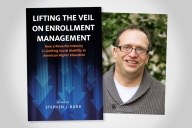You have /5 articles left.
Sign up for a free account or log in.
When a college goes about reviewing a student group’s alleged misconduct, decisions about whose testimony to seek and weigh often come under scrutiny. Questions of due process are fair game, but the university is not a court, and it sets its own judicial ground rules.
At the University of Florida, members of a suspended fraternity who argue that they didn't get a fair shake at a 2007 hearing won a legal victory this week, as a Florida appeals court ruled that the university didn't follow its rules on how to conduct a review of whether the house violated the institution’s alcohol policies.
In its decision, the First District Court of Appeal of Florida said that the university had relied on “inadmissible hearsay," and ordered that the fraternity be reinstated. Florida has less than two weeks to decide whether to file for a rehearing and is still reviewing options, said Janine Sikes, a university spokeswoman.
The investigation into the Pi Kappa Alpha house began in 2006, after three female Florida students described their experiences drinking at a party there. Police investigated whether the students might have been drugged or sexually assaulted, but ultimately found no evidence of either. No criminal charges were filed against fraternity members.
But the women's comments about attending the party were still presented as evidence in a hearing before the Greek Judicial Board last year. The student panel found the fraternity guilty of violating Florida's alcohol policies and recommended a suspension until 2009. University administrators tacked on an extra two years to the suspension, and when fraternity members lost their final internal appeal at Florida, they asked the court to issue a ruling.
The appeals court sided with the students' argument that findings of the Greek Judicial Board upon which the dean of students and assistant vice president of the division of student affairs based their decisions were “not supported by any competent evidence.” Noted in the decision is that Florida's rules expressly provide that at formal hearings, respondents should be able to question adverse witnesses. Some of those witnesses weren't presented for cross-examination at the initial hearing, with the panel instead hearing videotaped interviews and testimony from two police officers who had helped investigate the sexual assault and drugging charges but were not at the party, according to the students' legal defense.
In siding with the students, the court cited a case involving a University of South Florida student who was suspended from classes following a formal hearing, but who noted that complaining witnesses were never called -- a violation of university policy. A court ruled in favor of the USF student, noting that “it is recognized that in school suspension cases, a relaxed due process standard is followed. However, the school’s own code guaranteed the student the right to cross-examine witnesses who made allegations.”
Sikes said she couldn't talk about particulars of the Florida case because of the continuing litigation. But she noted the benefits generally of allowing students who make accusations to remain anonymous. “It’s important to make sure that any victims or anyone who may have been harmed by an incident doesn’t become further harmed by the process," she said.
Allen Winsor, a lawyer who is representing the fraternity, said he’s pleased with the appeals court decision but remains upset at how the university handled the judicial process.
“It’s about the procedures and that students and student organizations have a fair deal in hearings," he said.








